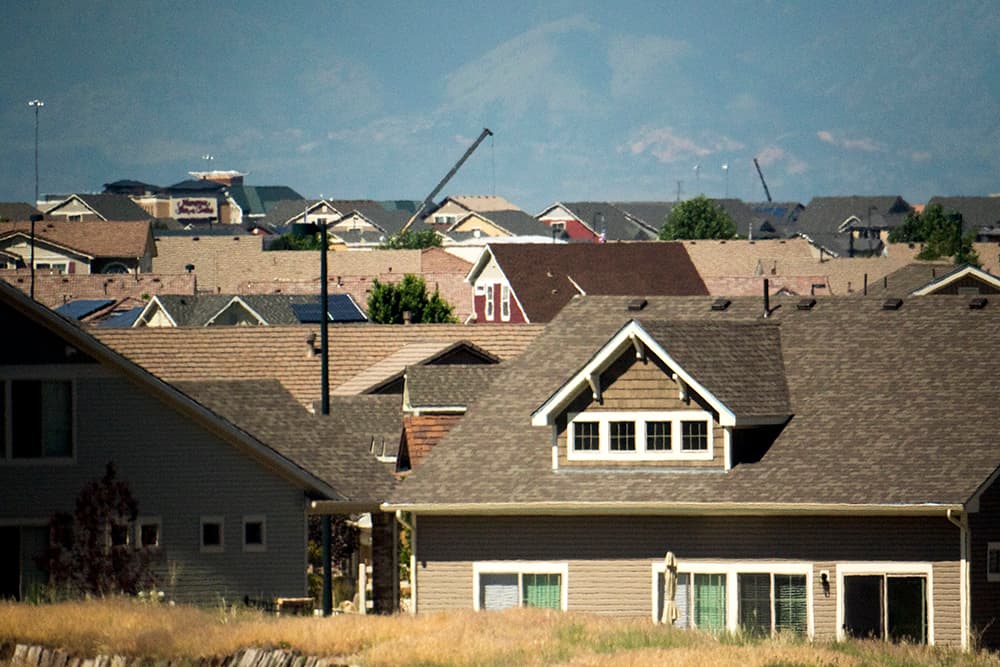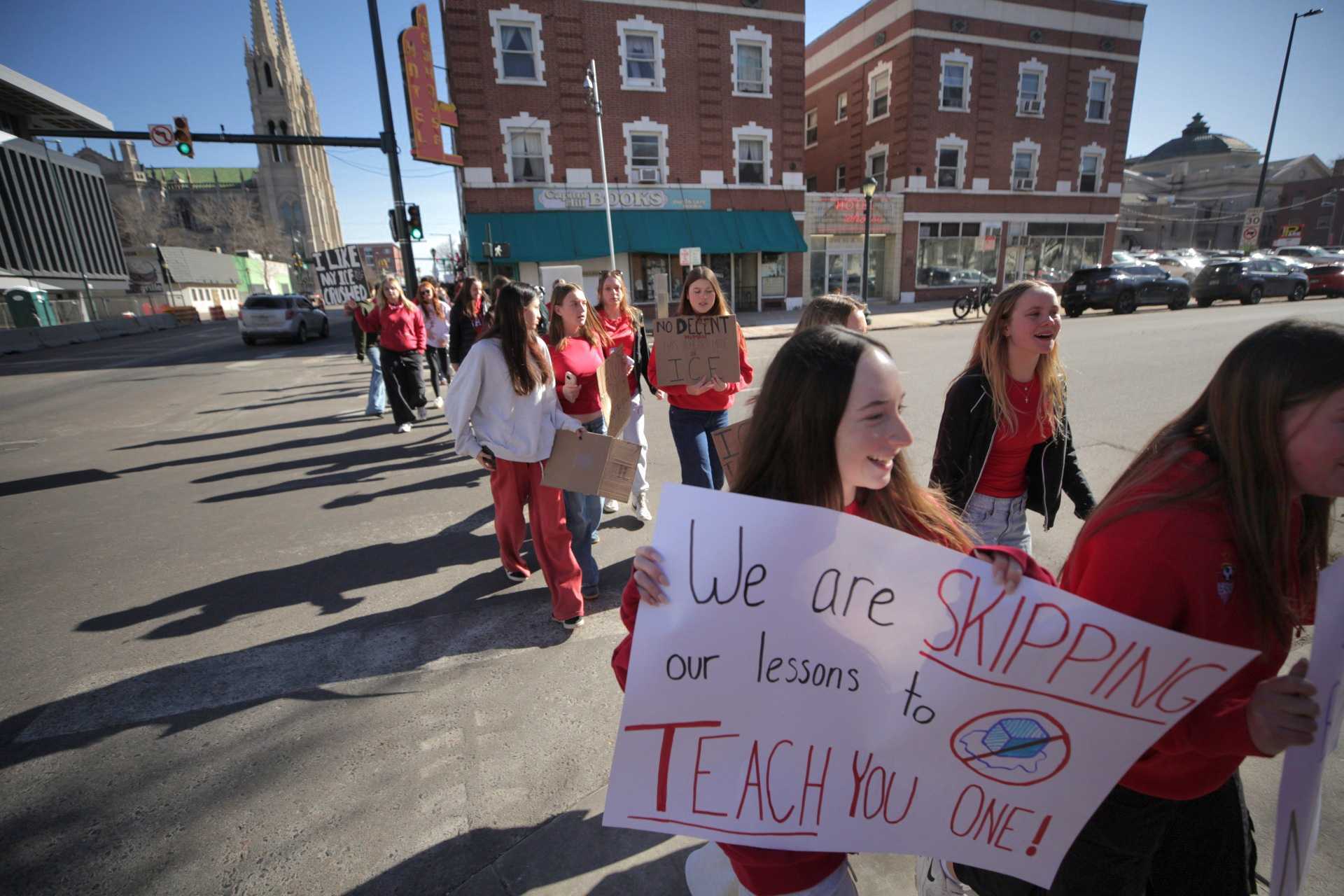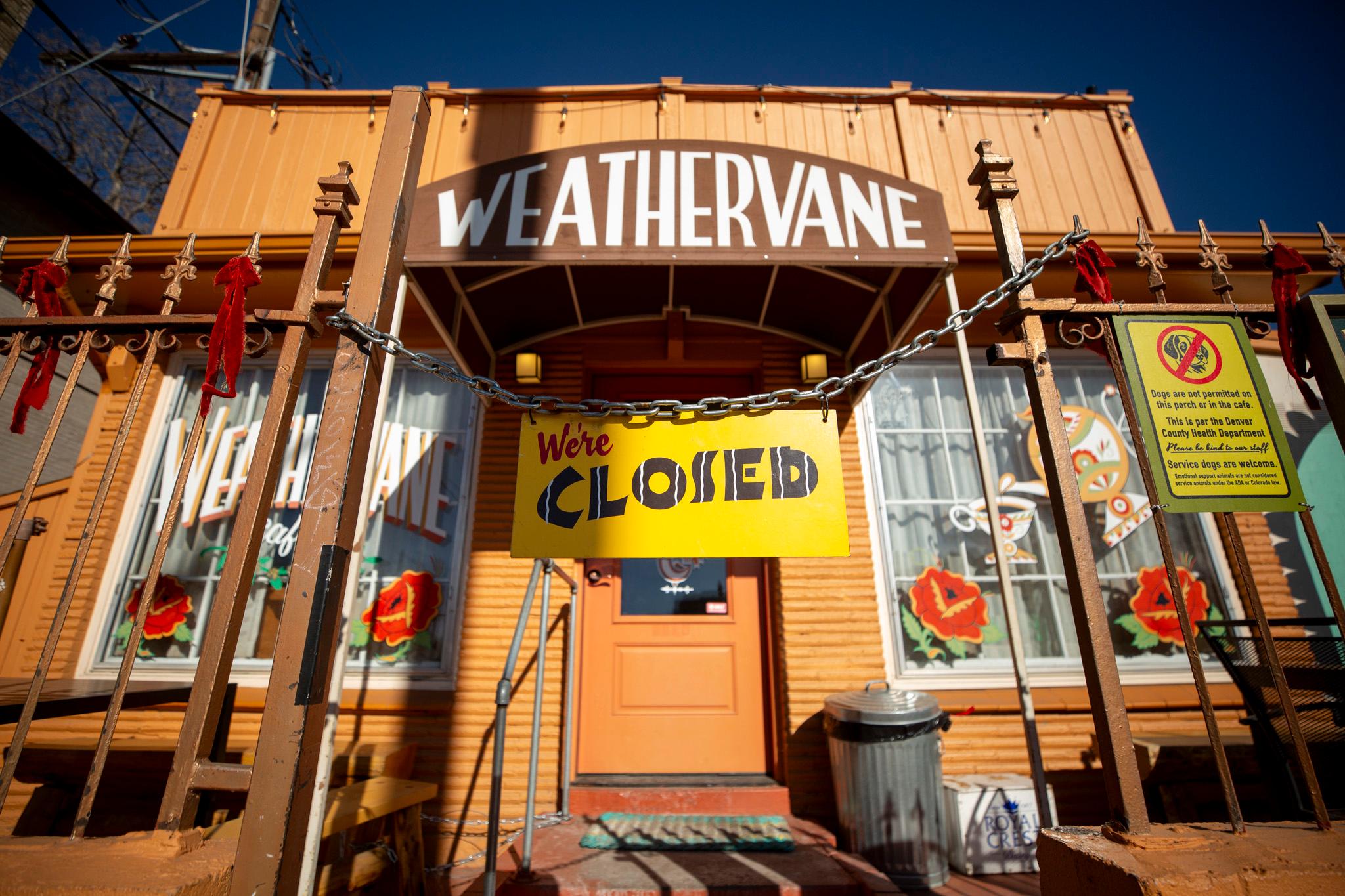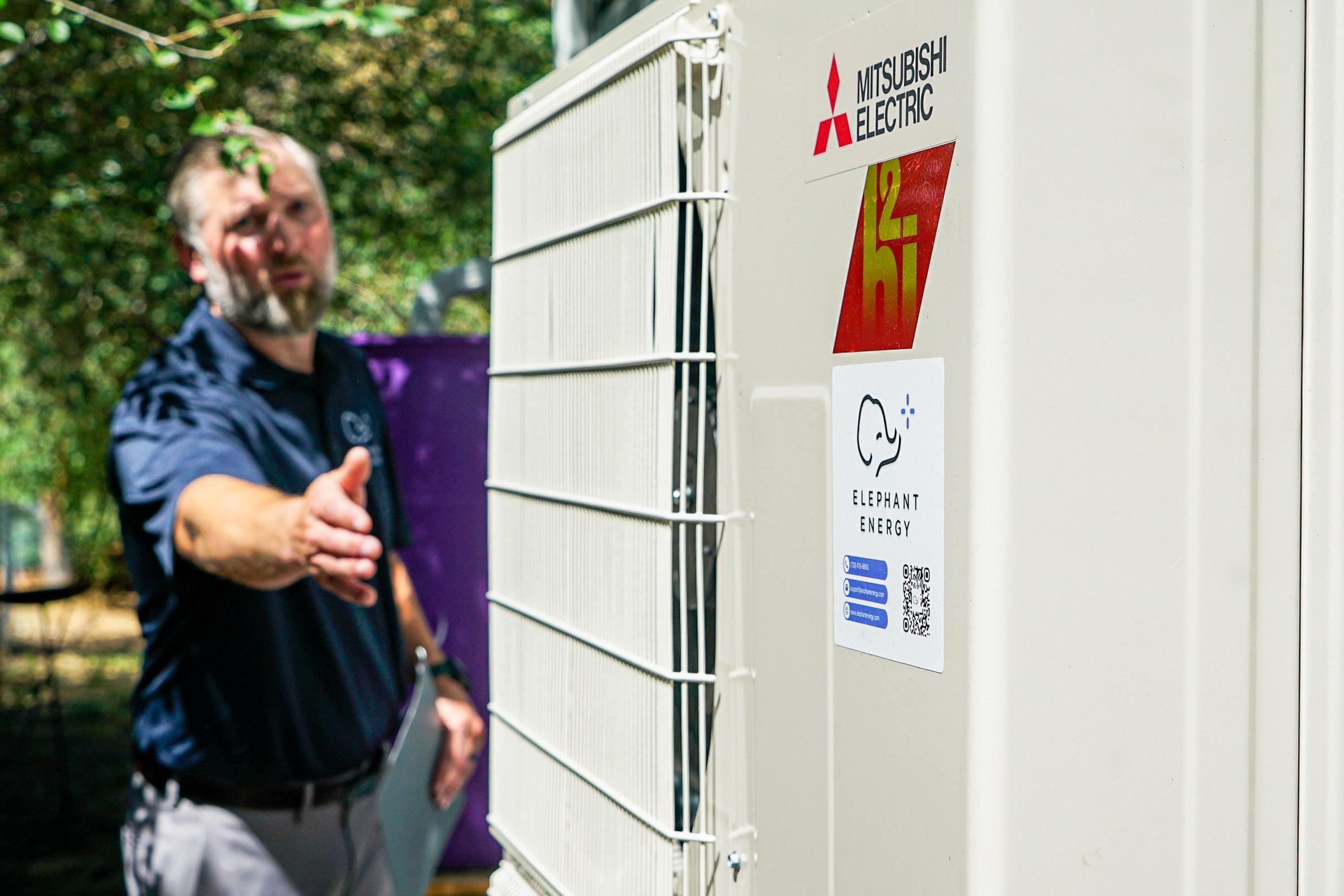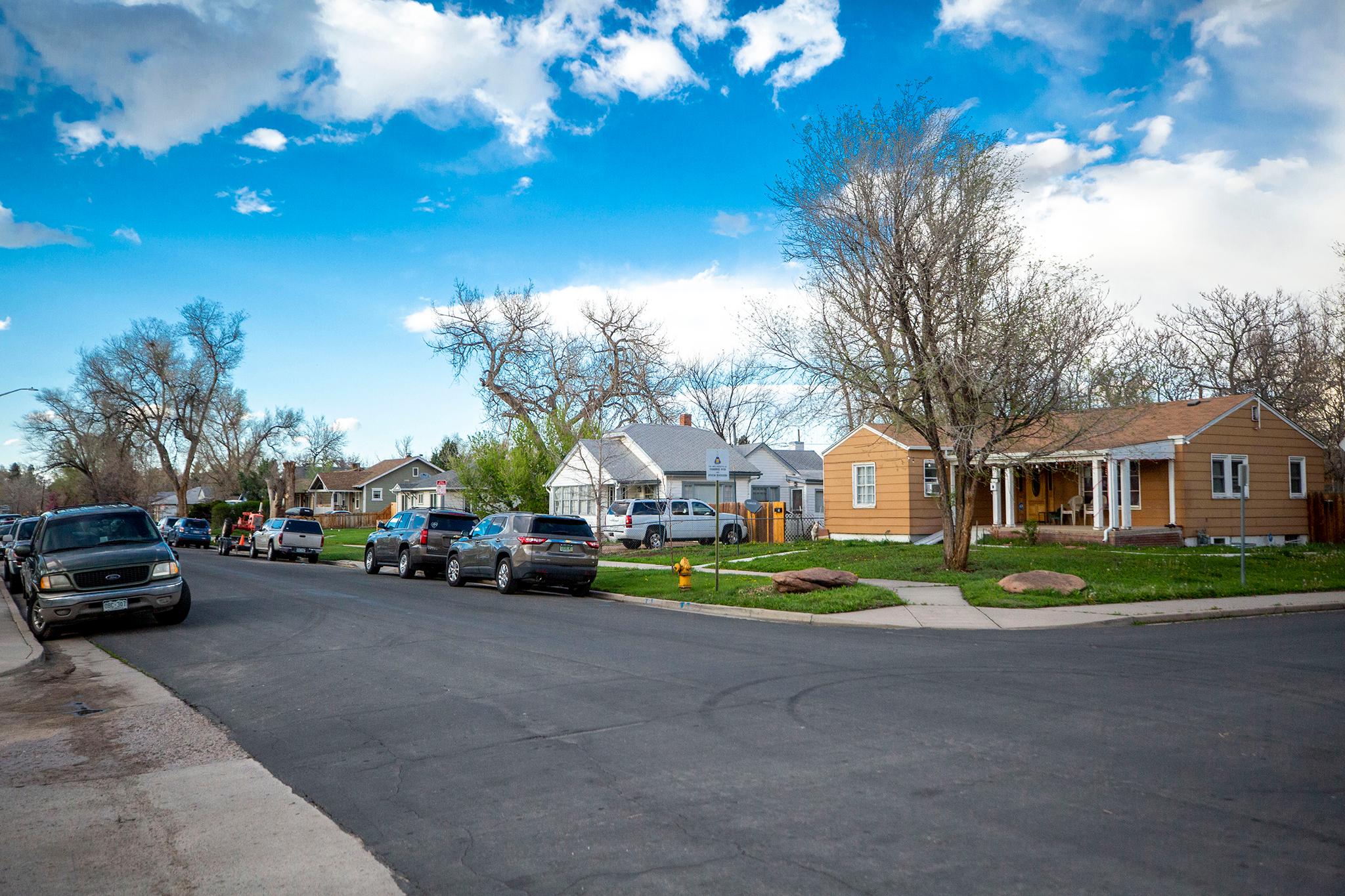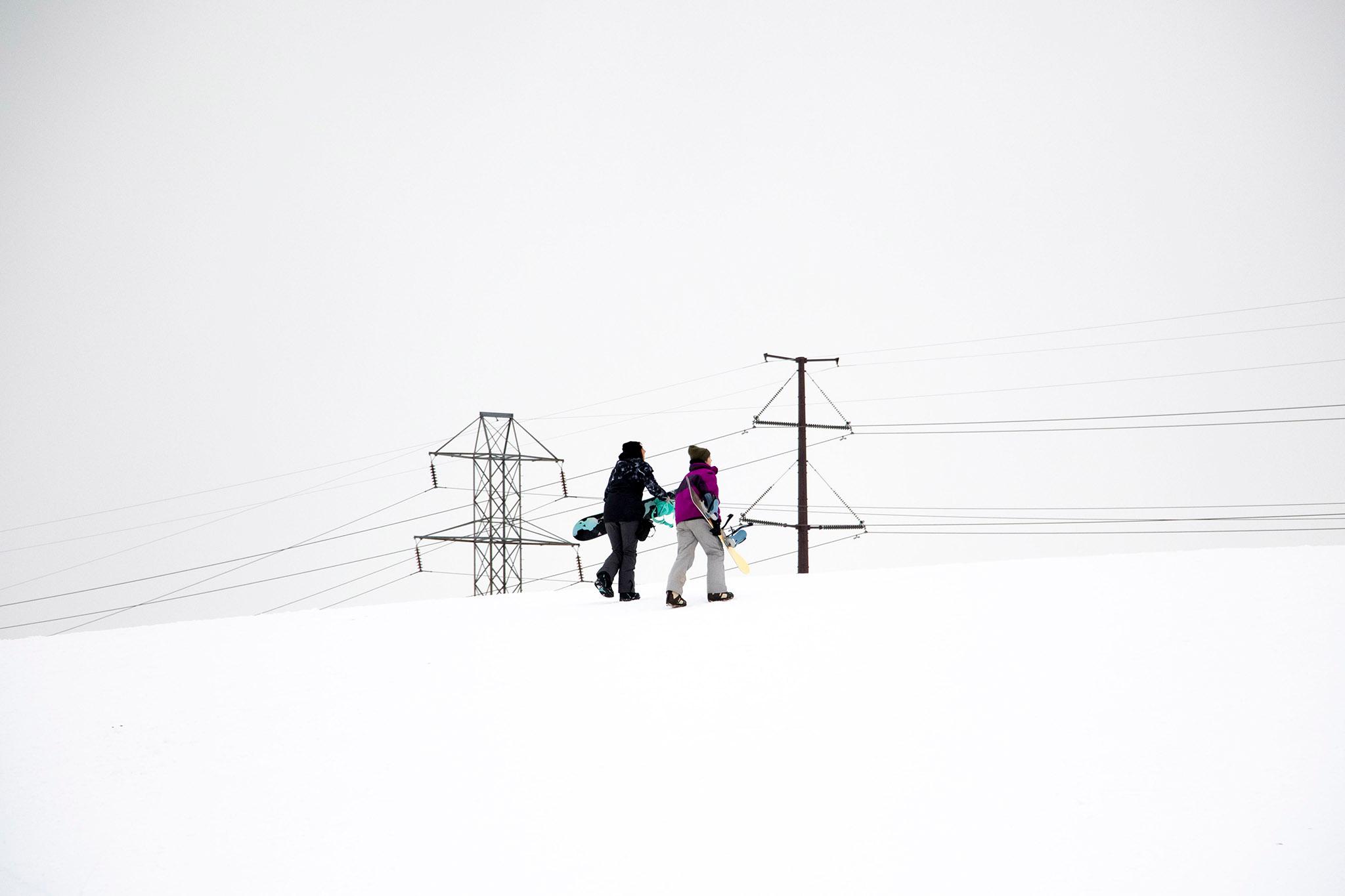In early March, news broke that a home owners association in Green Valley Ranch voted to foreclose on the homes of 60 of its residents. The Green Valley Ranch Master HOA brought more people to court in 2021 than it had in the entire decade prior.
State law grants a lot of power to HOAs, allowing them to pressure homeowners to pay fees with the threat of foreclosure over some violations. For some Green Valley Ranch residents, fines that began at a couple hundred dollars grew to thousands, for issues like bad landscaping or trashcans left on curbs for too long.
Emails Denverite obtained through an open records request show city workers were very concerned about the association's conduct, sometimes characterizing it as "predatory." The correspondences also suggest all Green Valley Ranch Master HOA residents facing foreclosure were people of color, and that there may be ongoing investigations to find out if the association engaged in any discriminatory practices.
"My family is in danger of losing our home."
On Feb. 9, 2022, a Green Valley Ranch resident wrote this plea to Denver City Council member Stacie Gilmore.
"My family is afraid of losing not only our home but all of the financial investment we have made in the last 16 plus years," he continued. "We have made some mistakes in regards to our property and home but it's unfair for the City and County of Denver along with Town Center Metro District to take away our children's patrimony."
The resident's home was part of the Town Center Metro District, not the Green Valley Ranch Master HOA, but his desperation hit on a problem Gilmore knew was brewing in her district.
"I am beginning to get emails from affected folks," Gilmore wrote to a long list of city employees, just an hour after the resident's email landed in her inbox. "I need to understand what the supports are to ensure we keep folks housed. What are the methods for relief for these families?"

Officials responded quickly.
"We definitely need to elevate this conversation to immediate action," Jay Salas, director of the Denver Office of Financial Empowerment & Protection, responded. "My team had a meeting this morning to strategize on reaching out to city partners to call an emergency meeting."
Emails show city departments scrambled to understand the larger issue. Within two weeks of learning about the problem, staffers and nonprofit partners had dug into public records and knocked on doors in the neighborhood to find residents who were at risk of losing their homes to try to connect them with resources. They also started working with Gilmore's office to plan a town hall on the issue. Concerned residents would later fill a room at a local rec center.
Emails show that Maureen Morley, director of the Denver Department of Housing Stability's (HOST's) Asset Management and Compliance division, hoped to find volunteers who could help fix problems that violated the Green Valley Ranch HOA's covenants. Many issues were related to trim that needed painting and repairing, broken windows and leaning fences. Morley was particularly concerned about elderly residents who couldn't fight foreclosure without help.
"We have a predatory HOA group in the Green Valley Ranch community," she wrote a group of volunteers on Feb. 25, 2022. "They are giving citations and fines to residents that have lived in their homes for decades. Most the families are unable to afford or physically make the repairs. Our concern is that we were able to keep their homes from foreclosure, but that won't stop the HOA from still preying on them."
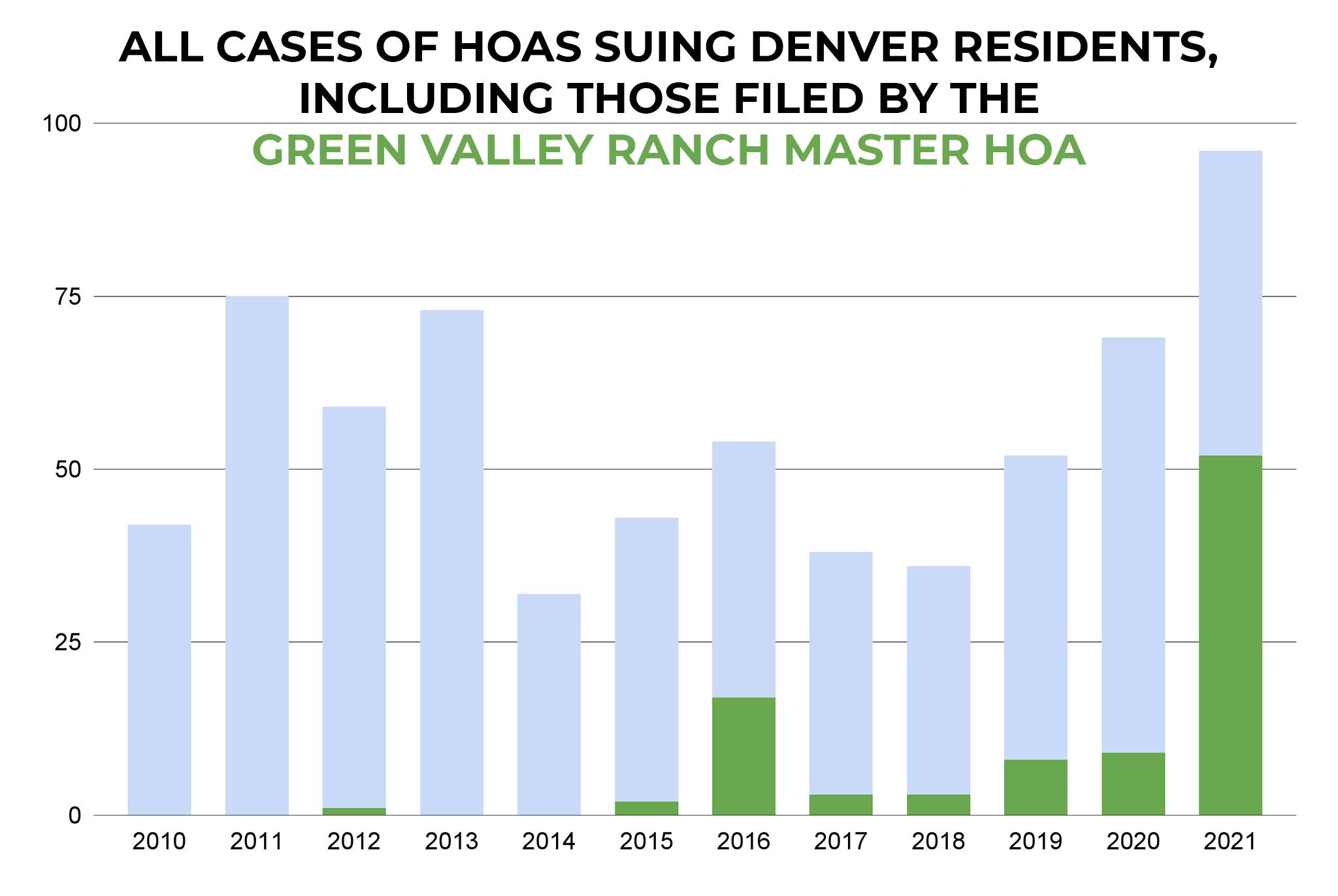
The Green Valley Ranch Master HOA's board members did not respond to interview requests for this story, but they did release an official statement. They said rule enforcement "creates curb appeal and increases property values" and pointed out that liens, lawsuits and foreclosures are legal under state statute. They also said they notify homeowners about issues long before they consider taking them to court, and that they exercised restraint during the depths of COVID shutdowns.
"Despite the legal right to do so, The Homeowners Association of Green Valley Ranch voluntarily suspended its collection and foreclosure of liens out of concern for housing during the pandemic," the statement reads. "The reported increase in foreclosures is nothing more than resumption of normal actions which were halted in 2020, along with more recent enforcement actions. The Board has always and continues to remain open to resolution of these cases in an amicable manner."
Internal emails from the city show HOST staffers recognized that the HOA's conduct was generally legal. But city workers wrote in emails that they worried the foreclosures could have crossed a line.
"What these HOAs are doing is not illegal, long story and turns your stomach," Morley wrote on Feb. 22, 2022. "What is illegal is if they are in fact targeting BIPOC or elderly households."
In a Feb. 3 email, Ron Ojeda, manager of the Denver Office of Financial Empowerment and Protection's consumer financial protection division wrote: "There may also be a discrimination component to this case."
According to his emails, his office first learned about the brewing issues in Green Valley Ranch on Feb. 3, 2022 from the Denver Metro Fair Housing (DMFH), a nonprofit that works to eliminate housing discrimination in the metro area. DMFH receives some financial support from HOST.
"It is a quickly developing case," Ojeda wrote to a long list of city and nonprofit workers on Feb. 9. "It wasn't until last night that DMFH walked through the neighborhood and knocked on doors to contact the homeowners."
What they found was cause for some alarm.
"DMFH believes we have a discrimination case," Ojeda continued. "All of the home owners are black or hispanic, low income, and owe less than $100,000 on their homes."
William Neidig, an intake specialist with DMFH, told us his group did knock on doors but would not comment on a potential investigation into the HOA. He also would not confirm that all of the impacted homeowners were people of color.
Britta Fisher, the head of HOST, told us her department is not investigating any possible discrimination and said it's not up to them to determine if an HOA is officially "predatory."
"That kind of predatory label comes from other entities making investigations or rulings on that, and that's not really what we do," she said.
A spokesperson for Denver's Office of Financial Empowerment & Protection also said that office does not conduct investigations.
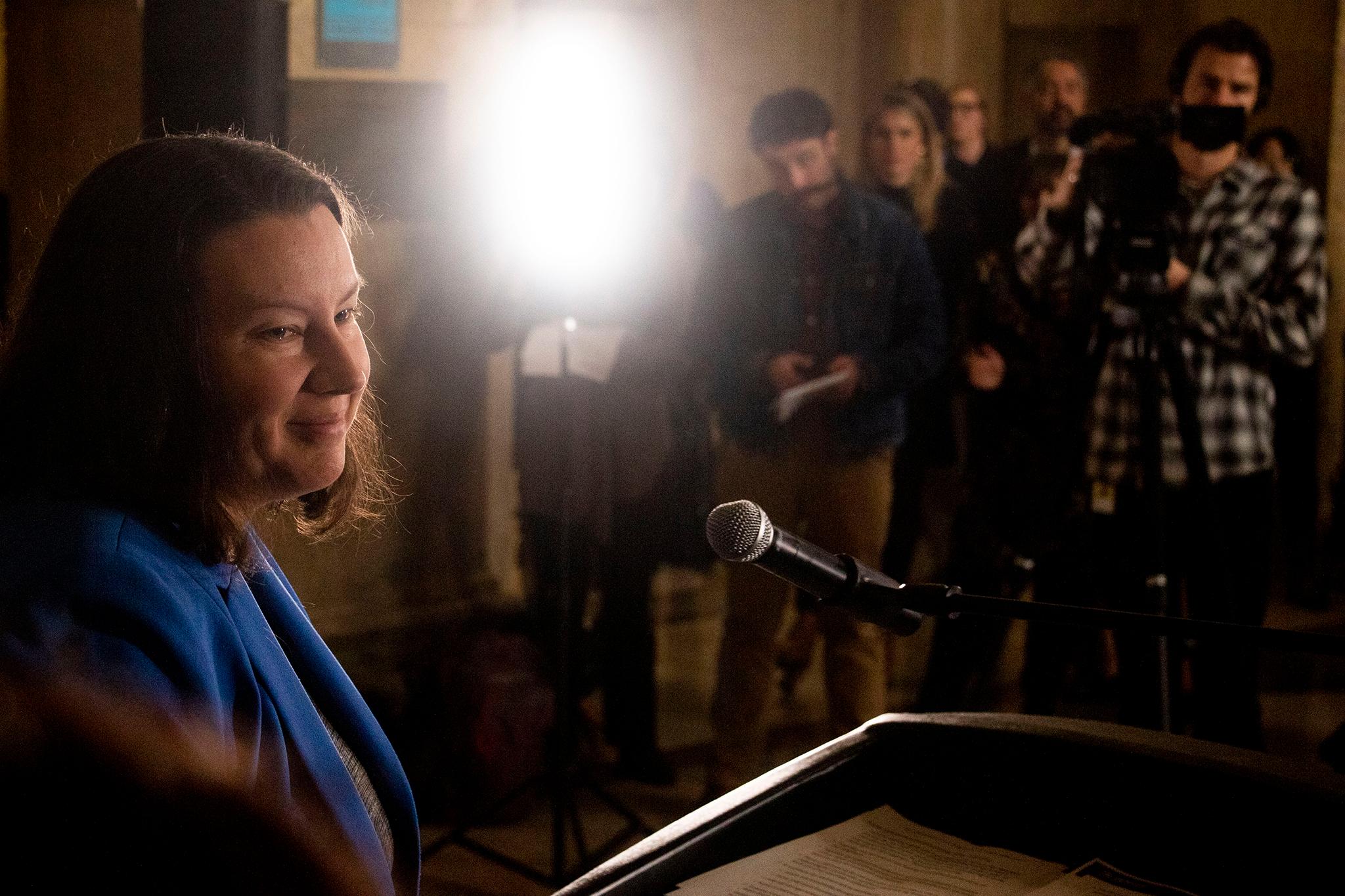
Kevin J. Beaty/Denverite
Gilmore did publicly ask Attorney General Phil Weiser to investigate the Green Valley Ranch Master HOA, though his office told us they would not comment on any possible investigations.
Neidig said housing discrimination is "unfortunately" a widespread issue in Denver and across the U.S.
"Our office processes approximately between 900 an 1,100 inquiries per year," he said. "It's definitely a big issue."
When DMFH thinks it has a strong discrimination case, it usually brings its initial investigation to the U.S. Department of Housing and Urban Development, which can take offenders to court. Neidig said as many as half of the claims DMFH receives each year can rise to that level, though his organization tries to handle situations before they get that far. Most of the cases he deals with have to do with access issues for people with disabilities. HOAs haven't been on his radar until now.
"The biggest issue we've seen is that homeowners are unaware that, under Colorado law, HOAs have a huge amount of power," he told us. "I wasn't aware until recently."
In an email sent Feb. 28, 2022, Morley said she thought the city's action on the issue may have helped slow it down.
"I think we may be on the HOA's radar, which is good, since they only filed for one foreclosure last week and we feared three," she wrote.
But Derek Woodbury, spokesperson for HOST, said it's unclear if the Green Valley Ranch Master HOA is slowing its lawsuit campaign.
"At this time," he told us, "we cannot conclude whether foreclosures have slowed down at all in Green Valley Ranch."

